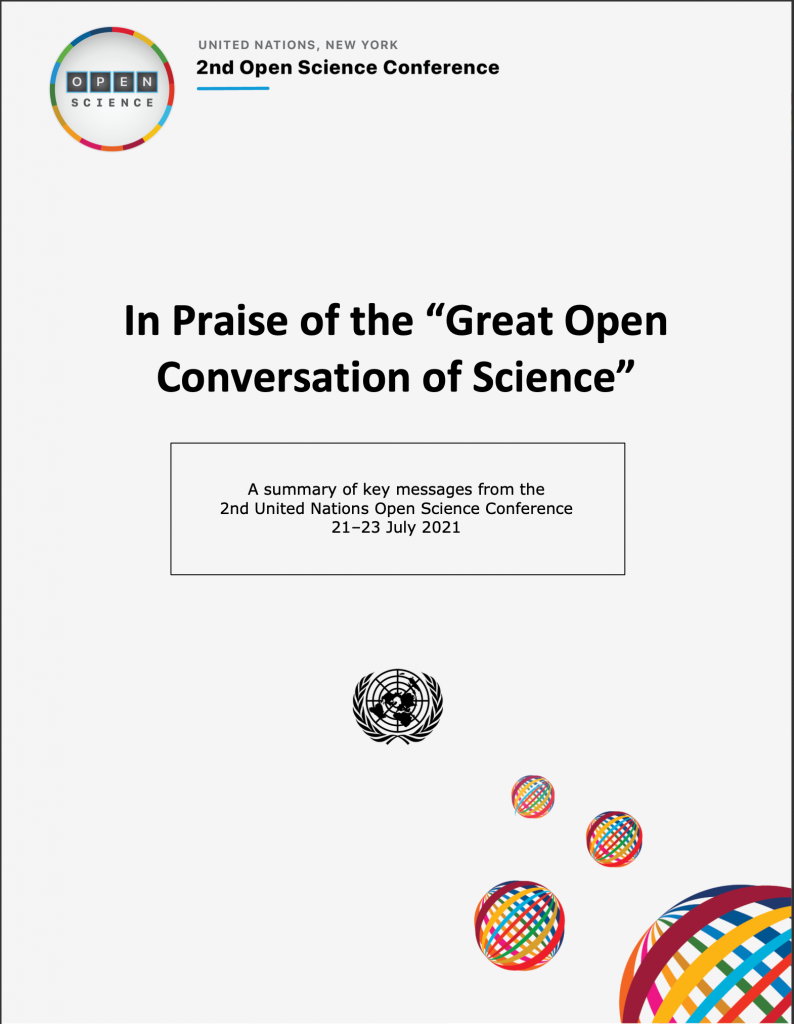
July 2021 saw the 2nd Open Science Conference delivered by the United Nations Department of Global Communications, Dag Hammarskjöld Library, and the United Nations Department of Economic and Social Affairs. The conference, “From Tackling the Pandemic to Addressing Climate Change”, saw policymakers, intergovernmental organizations, librarians, publishers, and research practitioners engage in a public dialogue focusing on what Open Science has learned from COVID-19 and how this can be applied into actions addressing the global climate crisis, at the interface of science, technology, policy, and research. The conference seized the opportunity to take stock of actions undertaken nationally and internationally, collect lessons learned, and identify directions for the way forward.
A recent report by the event’s organizers summarises the key messages from this conference, outlining the main ideas, opinions, and suggestions put forward by the speakers and audience members. The report covers:
– Global multistakeholder consultation for Open Science;
– Policy-makers for Open Science;
– Science, Open Science, COVID-19, and climate change;
– Strengthening the science-policy-society interface;
– Equity in open scholarship;
– The “Great Open Conversation of Science” in service to humanity;
– Academia, research, and Open Science infrastructures;
– Scholarly communications actors, and;
– Open Science for the Sustainable Development Goals.

The conference and the subsequent report build upon the rich global Open Science movement of new national and international policies and frameworks. This includes the 40th session of UNESCO’s General Conference in 2019, where 193 Members States tasked UNESCO with the development of an international standard-setting instrument on Open Science in the form of a UNESCO Recommendation on Open Science, to be adopted by Member States in November 2021.
In this context, the International Science Council, in its convening role as a global voice for science, reaffirms that advocating and advancing open science is fundamental to the work of achieving the Council’s vision of science as a global public good. The execution of the Action Plan 2019 – 2021 has, among other key milestones, seen the ISC publish a draft discussion paper entitled Open Science for the 21st Century, in response to the UNESCO global consultation on Open Science.
The ISC and its Members participated in the intergovernmental special committee meeting of technical and legal experts from 10 to 12 May 2021, to focus on the final report from the UNESCO Secretariat, which contained a draft of the Recommendation on Open Science. The ISC delegation to the UNESCO Special Committee meeting on Open Science, 6-12 May 2021, also published a statement, which explores how the recommendation and potential cascading interventions by Member States could develop along two divergent pathways. Members are still encouraged to republish the statement in their journals and websites in the lead-up to the UNESCO November conference.